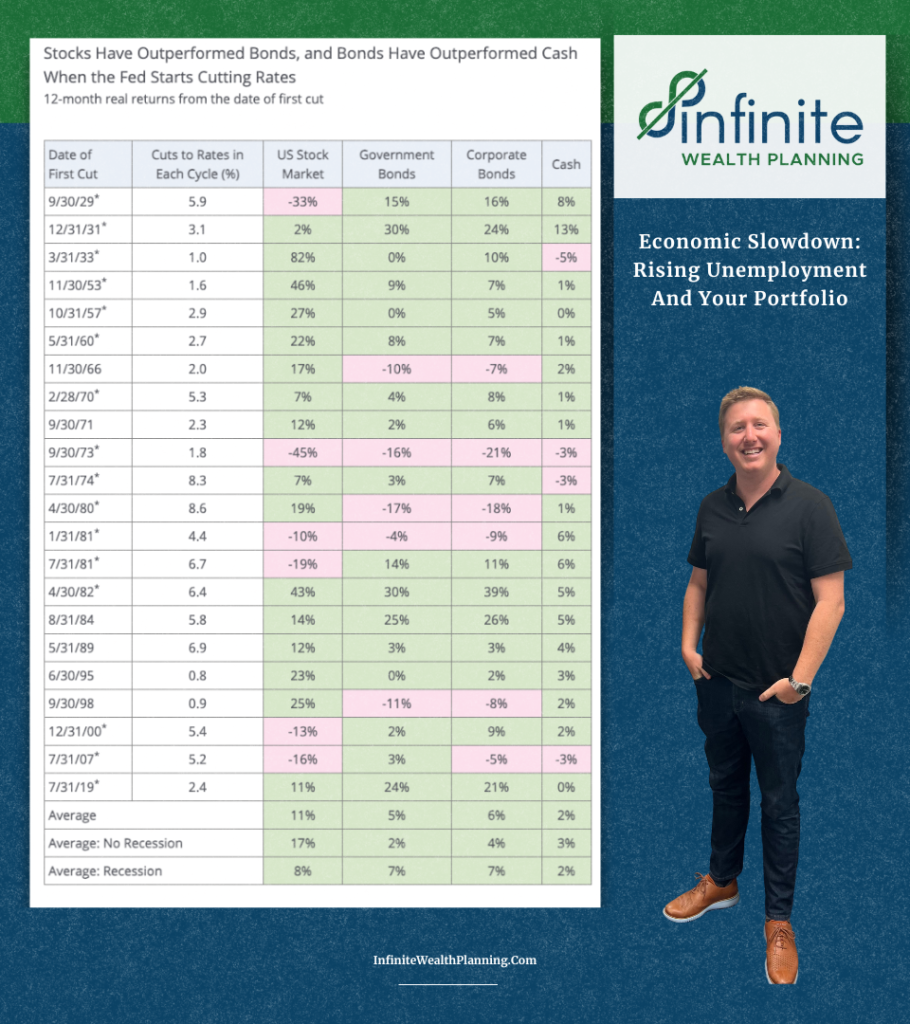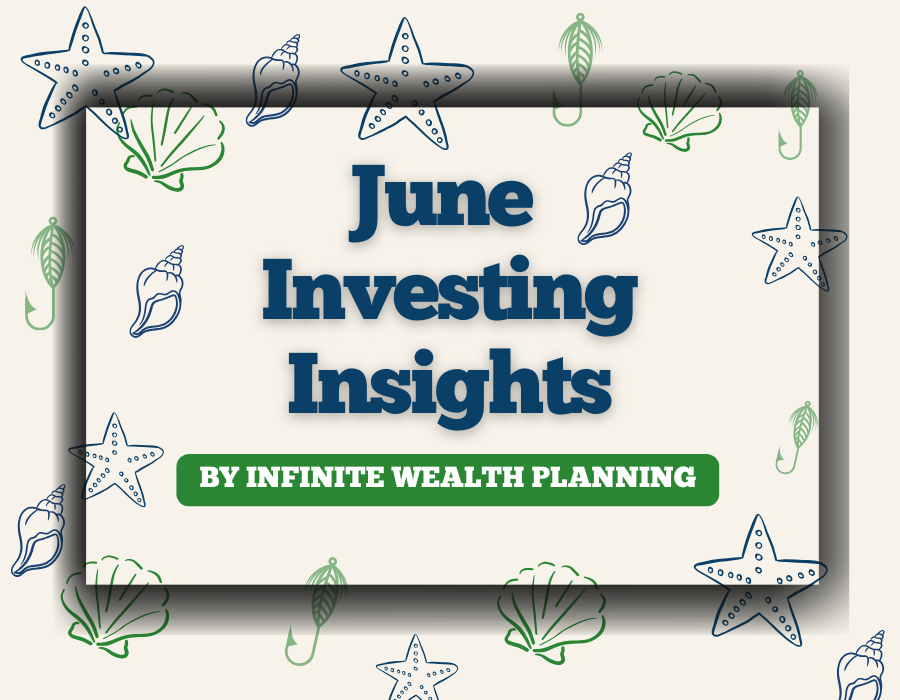Economic Slowdown? Rising unemployment and your portfolio
It’s finally here – the Fed is finally expected to drop rates this month, attempting to stimulate the economy and avoid a recession now that inflation is back under 3%. Market participants have been hoping for interest rates to drop for some time, starting with the Fed pivot in late 2023 when Jerome Powell signaled that they were considering rate reductions.
At that time, markets anticipated and “priced in” over seven interest rate cuts for 2024… but that never happened.
While year-over-year inflation continued to drop, economic data continued to show more resilient than expected, causing the Fed to keep rates higher for longer to bring inflation down close to their long-term target of 2% per year.
The good news was that a stubbornly strong economy proved more beneficial for stocks than the rate cuts we never got, propelling markets to their all-time highs by mid-July.
So, here we are, “cheering” the idea of interest rate cuts. While lower interest rates do help stimulate the economy, higher unemployment puts pressure on the cornerstone that drives the US stock market, the US consumer.
As we’ve discussed in our previous updates, the labor market has weakened in recent months, with the unemployment rate increasing above 4% this summer. We also got downward revisions from the Bureau of Labor Statistics (BLS), showing 818,000 fewer jobs added between April 2023 and March 2024 than previously reported, causing some to question the integrity of the data that the Fed is watching. Last Friday’s unemployment data showed continued downward revisions, with June and July’s numbers revised downward by a combined 86,000 jobs.
We expect that the market will have to deal with some push and pull as forces net out the extent of economic weakness versus the ability for the Fed to ease and avoid a broader recession. With interest rates higher than they’ve been in decades, the Fed does have room to cushion the blow as the economy slows. The market is currently expecting about 2.5% of cuts over the next 12 months, with over 1% of that coming before the end of 2024.
Historically, the market tends to do well after the first interest rate cut. Looking at the chart below, which shows the performance of stocks, bonds, and cash after historical cutting cycles, we see that the average returns for stocks 12 months after a rate cut are strong, with +17% returns on average over the next 12 months with a recession, and even an +8% average return if we do have a recession.
Overall, the U.S. economy remains resilient but is slowing. Strong growth in the first half of this year was led by consumption spending by higher income consumers, who tend to own homes and be invested in financial markets, which have seen significant gains in recent years. As incomes tighten and the labor market weakens, strong balance sheets in the form of high home equity and investment accounts at highs should continue to provide some cushion, reducing the likelihood of a deep recession.
Ultimately, it’s important to continue to stay the course as markets continue to “climb a wall of worry”. There are always looming negative issues and positive opportunities. While it can be hard to stay positive when there are a lot of negative issues, those issues represent things that can be solved, paving a pathway to higher markets over time.
Thanks For Reading! We Hope To See You Again!
For More Updates:
Advisory services offered through National Wealth Management Group, LLC, a Registered Investment Adviser. This information is intended for educational purposes and is not intended as a recommendation to buy or sell securities. Investing involves risk. Before investing, you should consult with a financial advisor to determine how a specific investment strategy fits your personal goals and objectives.






